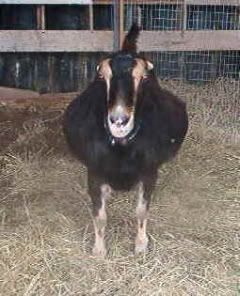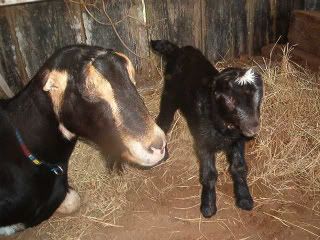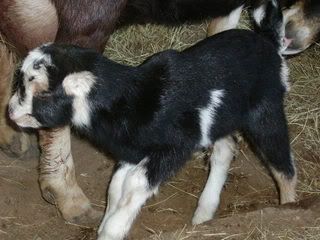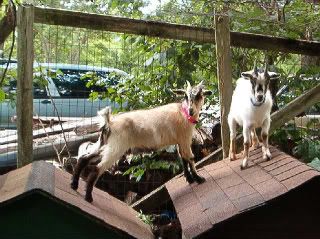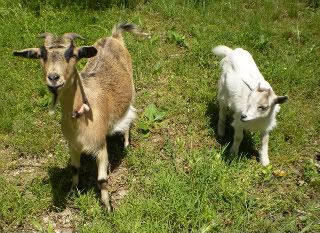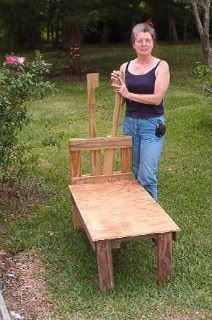After the initial newness wore off, we realized that we were interested in transitioning to real dairy goats. Luckily, I knew Emily of Ozark Jewels, and she was in the process of reducing her herd. She has a really fine goat herd, and I asked if she had any that she wanted to have special homes, but that might have quirks which made them hard to place.
Thus, Quirky Goat Farm was established with the arrival of Pumpkin, a Nubian yearling who didn't 'catch' when bred, and Orange, an Alpine who was producing close to a gallon of milk per day - on only one half an udder. Most goats have two teats. Orange had an injury early in her life, but her body adapted to the change. Her production is almost at the level of a high production two-teated doe.
This is Pumpkin.
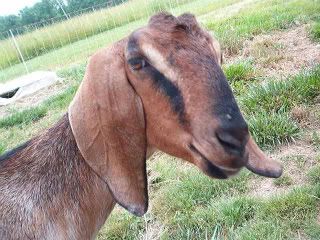
This is Orange.
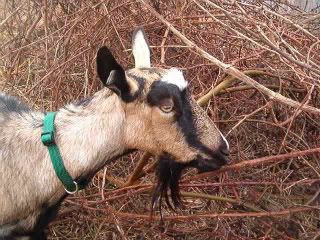
Our third doe was Princess, a LaMancha, which we acquired from Emily several months later. LaMancha goats have tiny ears.
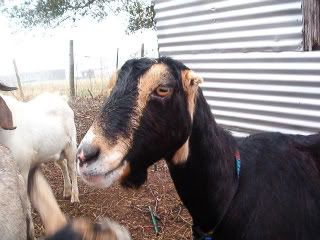
Princess was pregnant when we got her ..... VERY pregnant.
